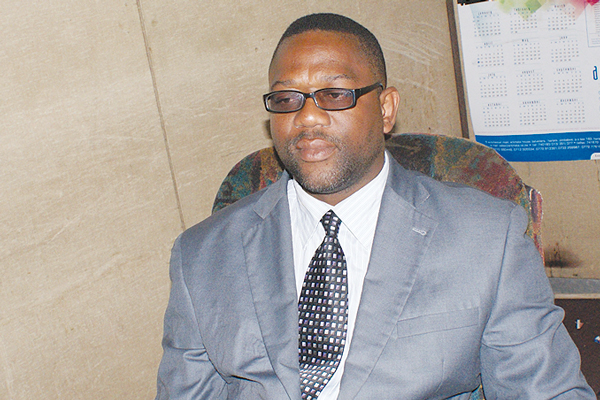
The importation of 300 megawatts (MW) of electricity by Zesa Holdings has helped ensure constant supply of power to companies and households despite the reduced generation capacity at Kariba Power Station, the power utility has said.
VICTORIA MTOMBA
Zesa is importing power from South Africa’s power utility, Eskom.
Kariba produces 750MW at its peak but its generation capacity has tumbled to 285MW due to low water levels in the dam.

Zesa stakeholder relations manager Fullard Gwasira said the country had been able to receive stable supplies since December 2015 because power generation at Hwange’s four units has been 500MW and this has been complemented by imports from Eskom.
Zesa has to make a $6,5 million pre-payment per month to get power from Eskom.
This has made Zesa one of Eskom’s premium customers as the utility pays in United States dollars at a time the South African rand has been weakening against major currencies. This has ensured uninterrupted supply of electricity and a reduction in the prices of alternatives such as liquified petroleum gas and paraffin.
A kg of LP gas is now pegged at between $1,20 to $1,60 countrywide, while paraffin is now between 55 cents and 90 cents per litre.
- Chamisa under fire over US$120K donation
- Mavhunga puts DeMbare into Chibuku quarterfinals
- Pension funds bet on Cabora Bassa oilfields
- Councils defy govt fire tender directive
Keep Reading
But the low generation capacity at Kariba has given the power utility headaches in tariffs as it is the cheapest source of power. Kariba power station generates power at 2 cents per kilowatt hour and is the cheapest source of power in the generation mix. Hwange generates power at 6 cents per kilowatt hour and small thermals Bulawayo, Harare and Munyati generate at 14 cents per kilowatt hour.
“Kariba is the cheapest but at the moment it has lost half of its capacity, which has resulted in the consideration of premium power. Rather than wait for the rains, we have had to put in place strategic interventions to make sure that the lights stay on,”Gwasira said.
He said the power utility was looking at getting 56MW up to 100MW from Lusemfwa in Zambia starting in August. This will run up to next year.
Gwasira said prepaid customers had cushioned the utility, enabling it to pay for imports. Zesa gets about $24 million monthly from prepaid customers.
A total of 550 000 prepaid meters have been installed and 140 000 more are expected in the country by June this year.
Gwasira said Zesa was also looking at getting supplies from Mozambican power utility Electricidade de Moçambique (EDM).
“We are looking at getting an additional 40MW from Eletricadade De Mocambique national utility and we are still discussing as there has been indications that the tariff will be 15,5 cents per kilowatt,” Gwasira said.
He said the utility had managed to save 68MW of power nationally through the use of compact fluorescent lamps and light emitting diodes.
Gwasira said despite all the interventions of getting electricity from the region, power was being sold at 9,86 cents per kilowatt hour, while the average regional cost is 15 cents.
He said the 14,64 cents tariff that was applied for to the electricity regulator had a 49% increase to cover for the effects of low production at Kariba Power Station, which has been affected by the drought.
“All these measures do not mean that load-shedding is gone. We are operating at a margin and when the winter peak comes, load-shedding will return. Measures to increase the tariffs are designed to ensure that the effects are alleviated,” he said.
Gwasira said if the tariff was not increased, the utility might have to revert back to provide power that is commensurate with the 9,86 cents per kilowatt hour.
Engineering Council of Zimbabwe chief executive officer Ben Rafemoyo, said the reduction in the generation of hydro power — the cheapest source of power — would push up aggregate prices with or without power imports. He said small thermals were expensive to maintain.
“The cost of not getting power is still a lot higher than what Zesa has been asking for. As a country with all our challenges, it would be better than running our industries on diesel generators. Appreciating the challenges people are facing, we still have to accept that the prices will not remain the same. There must be a compromise,” Rafemoyo said.











